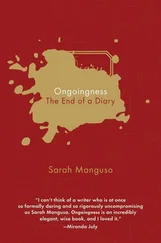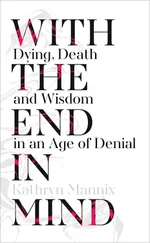This is when I noticed the pattern of dealing with dying. I am fascinated by the conundrum of death: by the ineffable change from alive to no-longer-alive; by the dignity with which the seriously ill can approach their deaths; by the challenge to be honest yet kind in discussing illness and the possibility of never getting better; by the moments of common humanity at the bedsides of the dying, when I realise that it is a rare privilege to be present and to serve those who are approaching their unmaking. I was discovering that I was not afraid of death; rather, I was in awe of it, and of its impact on our lives. What would happen if we ever ‘found a cure’ for death? Immortality seems in many ways an uninviting option. It is the fact that every day counts us down that makes each one such a gift. There are only two days with fewer than twenty-four hours in each lifetime, sitting like bookends astride our lives: one is celebrated every year, yet it is the other that makes us see living as precious.
Sometimes, things that are right in front of our noses are not truly noticed until someone else calls them to our attention.
Sometimes, courage is about more than choosing a brave course of action. Rather than performing brave deeds, courage may involve living bravely, even as life ebbs. Or it may involve embarking on a conversation that feels very uncomfortable, and yet enables someone to feel accompanied in their darkness, like ‘a good deed in a naughty world’.
Here’s Sabine. She is nearly eighty. She has a distinguished billow of silver-white hair swept into a knotted silk scarf, and she wears a kaftan (the genuine article, from her travels in the Far East in the 1950s) instead of a dressing gown. She is in constant motion in her hospice bed, playing Patience, applying her maquillage , moisturising her sparrowesque hands. She drinks her tea black and derides the ‘You call that coffee?’ offered by the beverages trolley. She has a French accent so dense it drapes her speech like an acoustic fog. She is the most mysterious, self-contained creature we have encountered in our newly built hospice.
Sabine has lived in England since 1946, when she married a young British officer her Resistance cell had hidden from Nazi troops for eighteen months. Peter, her British hero, had parachuted into France to support the Resistance. He was a communications specialist, and had helped them to build a radio from, by the sound of it, only eggboxes and a ball of string. I suppose he may also have brought some radio components in his rucksack, but I dare not ask. Forty years later, her accent sounds as though she has just stepped off the boat at Dover, a new bride with high hopes. ‘Peter was so clever,’ she murmurs. ‘He could do any-sing.’
Peter was very brave. This is not in doubt: Sabine has his photograph and his medals on her bedside table. He died many years ago, after an illness that he bore with characteristic courage. ‘He was never afraid,’ she recalls. ‘He told me always to remember him. And I do, naturellement , I talk to him every day’ – and she indicates the photograph of her handsome husband, resplendent in dress uniform and frozen in monochrome at around forty years of age. ‘Our only sadness was that the Lord did not send us children,’ she reflects. ‘But instead we use our time for great travel and adventures. We were very ’appy.’
Her own medal for courage is pinned to her chest on a black and red ribbon. She tells the nurses that she has only taken to wearing it since she realised that she was dying. ‘It is to remind me that I too can be brave.’
I am a young trainee in the new specialty of palliative medicine. My trainer is the consultant in charge of our new hospice, and Sabine loves to talk to him. From his discussions with her, it emerges that he is bilingual because his father was a Frenchman, and also a Resistance fighter. He occasionally has conversations with Sabine in French. When this happens, she sparkles and moves her hands with animation; the symmetrical Gallic shrugs between them amuse us greatly. Sabine is flirting.
And yet, Sabine is keeping a secret. She, who wears her Resistance Medal and who withstood the terror of the war, is afraid. She knows that widespread bowel cancer has reached her liver and is killing her. She maintains her self-possession when she allows the nurses to manage her colostomy bag. She is graceful when they wheel her to the bathroom and assist her to shower or bathe. But she is afraid that, one day, she may discover that she has pain beyond her ability to endure, and that her courage will fail her. If that should happen, she believes (with a faith based on 1930s French Catholicism mixed with superstition and dread) she will lose her dignity: she will die in agony. Worse: her loss of courage at the end will prevent her forever from rejoining her beloved husband in the heaven she so devoutly believes in. ‘I will not be worthy,’ she sighs. ‘I do not have the courage that I may require.’
Sabine confesses this deep-seated fear while a nurse is drying those silver tresses after a shower. The nurse and Sabine are looking at each other indirectly, via the mirror. In some way, that dissociation of eye contact, that joint labour at the task in hand, enabled this intimate conversation. The nurse was wise; she knew that reassurance would not help Sabine, and that listening, encouraging, allowing the full depth of her despair and fear to be expressed, was a vital gift at that moment. Once her hair was dressed, her silk scarf in place and Sabine indicated that the audience was over, the nurse asked permission to discuss those important concerns with our leader. Sabine, of course, agreed: in her eyes our leader was almost French. He would understand.
What happened next has lived with me, as if on a cinema reel, for the rest of my career. It formed my future practice; it is writing this book. It has enabled me to watch dying in a way that is informed and prepared; to be calm amidst other people’s storms of fear; and to be confident that the more we understand about the way dying proceeds, the better we will manage it. I didn’t see it coming, but it changed my life.
Our leader requested that the nurse to whom Sabine had confided her fear should accompany him, and added that I might find the conversation interesting. I wondered what he was going to say. I anticipated that he would explain about pain management options, to help Sabine be less worried about her pain getting out of control. I wondered why he wanted me to come along, as I felt I was already quite adept at pain management conversations. Ah, the confidence of the inexperienced …
Sabine was delighted to see him. He greeted her in French, and asked her permission to sit down. She sparkled and patted the bed, indicating where he should sit. The nurse sat in the bedside chair; I grabbed a low stool and squatted down on it, in a position from which I could see Sabine’s face. There were French pleasantries, and then our leader came to the point. ‘Your nurse told me that you have some worries. I am so glad you told her. Would you like to discuss this with me?’
Sabine agreed. Our leader asked whether she would prefer the conversation to be in English or French. ‘ En Anglais. Pour les autres ,’ she replied, indicating us lesser beings with benevolence. And so he began.
‘You have been worrying about what dying will be like, and whether it will be painful for you?’
‘Yes,’ she replied. I was startled by his direct approach, but Sabine appeared unsurprised.
‘And you have been worrying that your courage may fail?’
Sabine reached for his hand and grasped it. She swallowed, and croaked, ‘ Oui .’
‘I wonder whether it would help you if I describe what dying will be like,’ he said, looking straight into her eyes. ‘And I wonder whether you have ever seen anyone die from the illness that you have?’
Читать дальше












